Report: US corridor in Gaza sparks suspicions about post-war plans
Israel has backed the US plan to construct a pier allegedly aimed at getting aid into Gaza in order to retain control over the aid deliveries and as a way to displace Palestinians from the besieged strip via the Mediterranean Sea, experts say.
US President Joe Biden ordered the construction of the pier in March. Shortly afterwards, the US deployed naval ships to the Eastern Mediterranean to construct the "floating pier" that will reportedly receive aid from a Cyprus, and send it onward to Gaza.
The US announcement came amid mounting pressure on Israel to allow aid into Gaza as the UN and other aid agencies have warned of imminent famine due to Israel's prevention of the land-based delivery of life-saving aid to Gaza.
“People in Gaza are starving, so they will be encouraged by aid that comes from any place,” Talal Okal, a UAE-based Palestinian political analyst, told Middle East Eye.
Okal noted that Israel rushed to back the pier as it echoes Israeli foreign minister Israel Katz’ plan to build a futuristic artificial island off the coast of Gaza, which, he says, is designed to consolidate the regime’s control over aid to the strip, not bring in more.
Katz proposed an artificial island to distribute aid to Gaza during a meeting with European Union foreign ministers in January. Back then, reports said the proposal caused dismay in Brussels.
Shira Efron, director of research at the Israeli Policy Forum, reiterated that the US-announced pier and Katz’ plan are similar.
“There are similarities between the two ideas,” Efron told MEE.
Efron, who also consults with a UN team in al-Quds advising on Gaza, also noted that the maritime corridor was attractive to Israel because it “wants to retain overall security control of Gaza.”
“Cyprus is fine with Israel determining the inspections regime and committing to do what Israel tells them security-wise,” she said.
“For Israel, it’s a great deal,” she said.
David Harden, a former US Aid mission director to the West Bank and Gaza, stressed that the maritime corridor should not be used as an excuse to prevent the opening of more land crossings.
“From a humanitarian perspective, you want as many points of access as possible, but the land crossings are everything,” Harden said, adding “Israel has the means and obligation to prevent a famine in Gaza.”
Okal said “I think the port will make it convenient for Israel to keep land borders to Gaza closed.”
“In Gaza, all aid is political,” he added.
Okal also believes that Israel agreed to the pier as a way to displace Palestinians from Gaza via the Mediterranean, ahead of an expected invasion of the southern town of Rafah, where nearly more than half of Gaza's population of 2.4 have sought shelter from Israeli strikes elsewhere in Gaza.
“There are more corridors, better, faster, and cheaper via land. This [the port] is a way to help the Israelis fulfill their goal of displacing Palestinians after their failure to push them into Sinai.”
Meanwhile, the pier was criticized as a virtue signaling by the Biden administration amid its inability to pressure Israel to allow aid into Gaza by land.
Jose Andres, the celebrity chef of the NGO World Central Kitchen (WCK), was among the critics of the US proposal, saying the US administration needed to start demanding that Israel “stop killing children, targeting humanitarian volunteers and press! [And] open more routes by road into Gaza.”
He made the remarks in a social media post last month, adding the US military-led mission “not the answer nor welcomed by the people of Gaza.”
Last week, seven aid workers, including foreign nationals, working for the WCK were killed in an Israeli airstrike in central Gaza. After the attack, the NGO and several other aid organizations have suspended all operations in Gaza out of safety concerns.
Israel launched the war on Gaza on October 7 after the Palestinian resistance movement Hamas waged the surprise Operation Al-Aqsa Storm against the occupying entity in response to the Israeli regime's decades-long campaign of bloodletting and devastation against Palestinians.
Tel Aviv has also blocked water, food, and electricity to Gaza, plunging the coastal strip into a humanitarian crisis.
The EU’s foreign policy chief has said Israel was using starvation as a “weapon of war”, while the UN’s top court ordered Israel to ensure the “unhindered” delivery of food and other aid to Gaza.
Since the start of the offensive, the Tel Aviv regime has killed 33,037 Palestinians and injured nearly 75,668 others.
Profile: Maj. Gen. Abdolrahim Mousavi, the martyred Chief of Staff of Iran's Armed Forces
Profile: Major General Mohammad Pakpour, the martyred IRGC commander-in-chief
Iran’s government declares 40 days of mourning over Leader’s martyrdom
American criminals and Israeli regime will 'regret' war of aggression against Iran: General Staff
Iran’s defense minister, chief of staff of armed forces assassinated in US-Israeli strikes
Pezeshkian condemns ‘savage’ US-Israeli attack on school that killed nearly 90
Islamic Jihad extends 'full solidarity' with Iran following Israeli-American aggression
Leader of the Islamic Revolution martyred in cowardly Israeli-American aggression


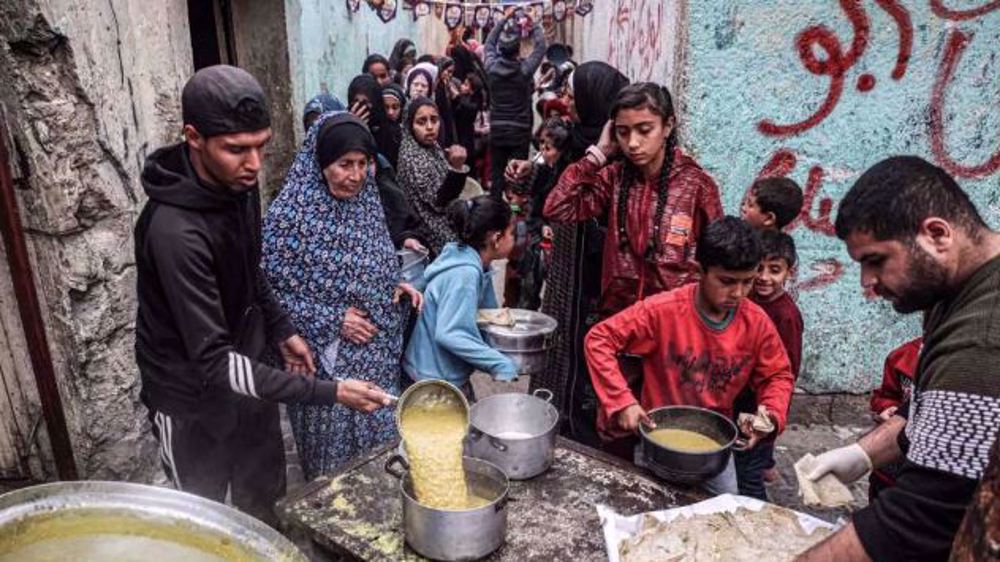
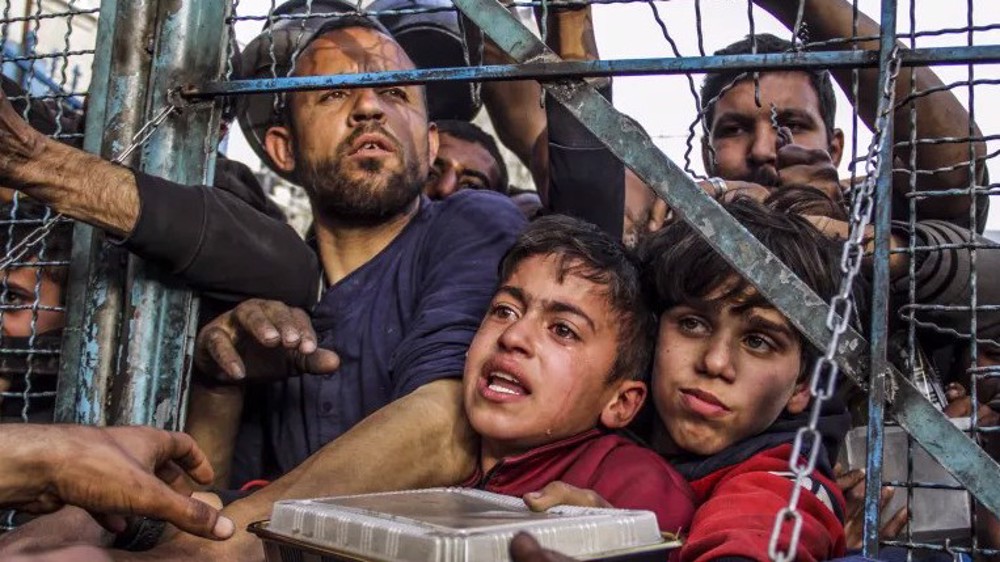
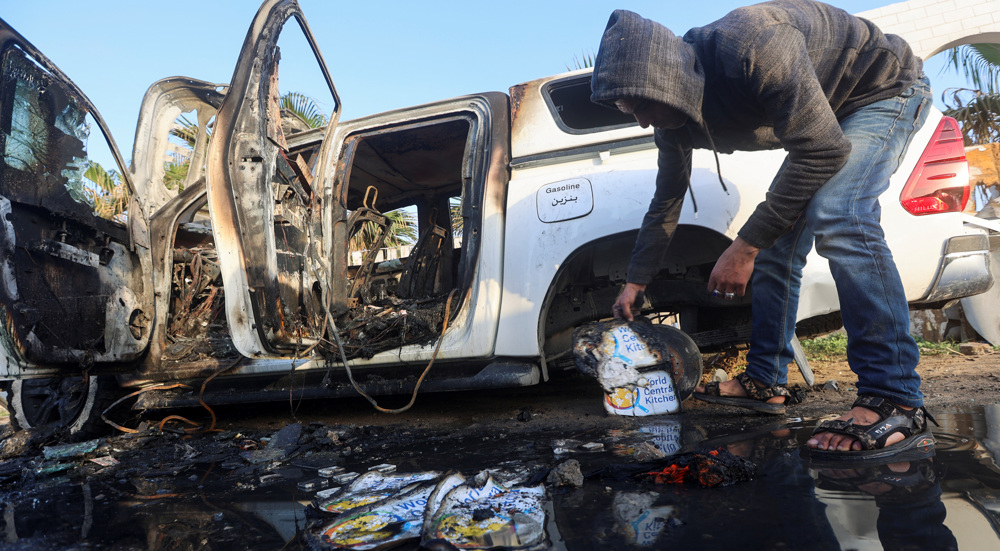
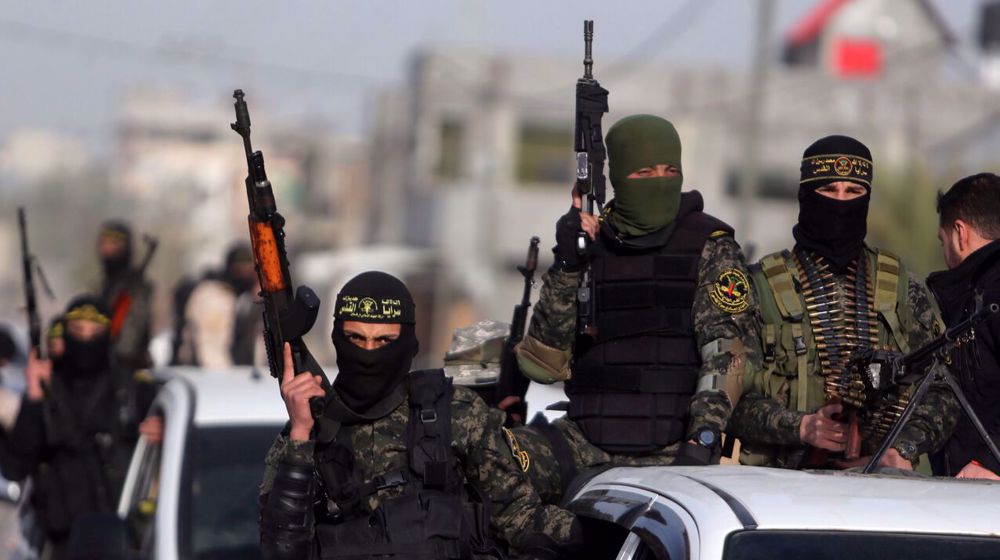
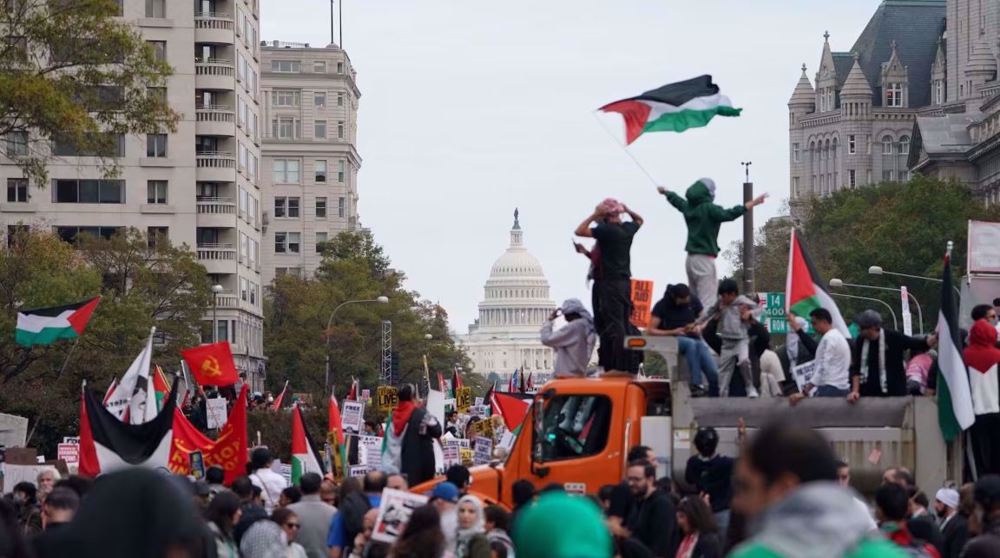
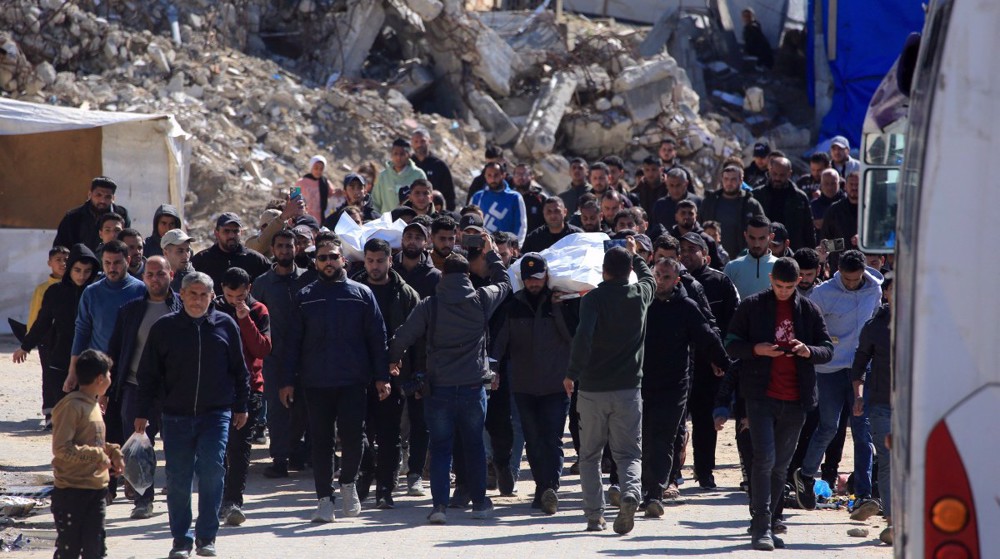



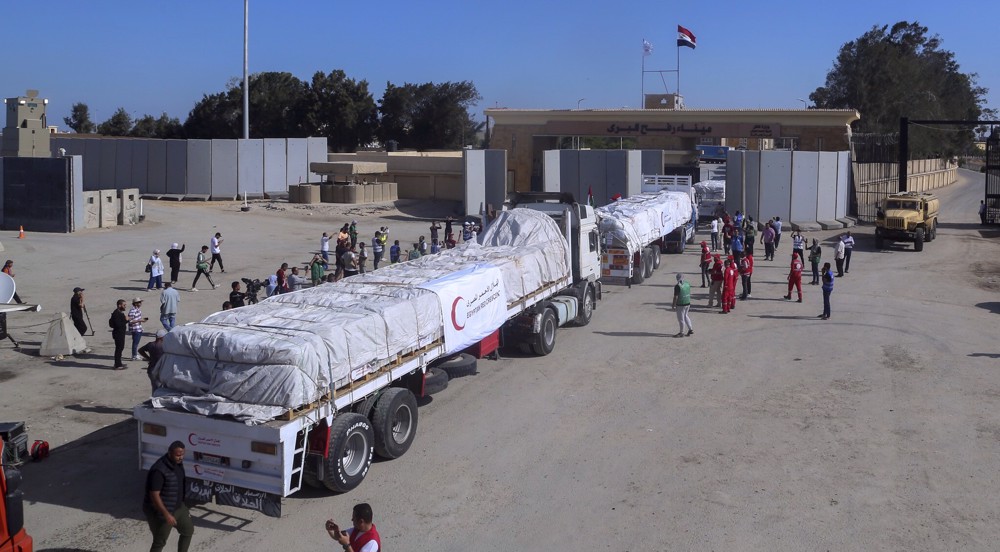
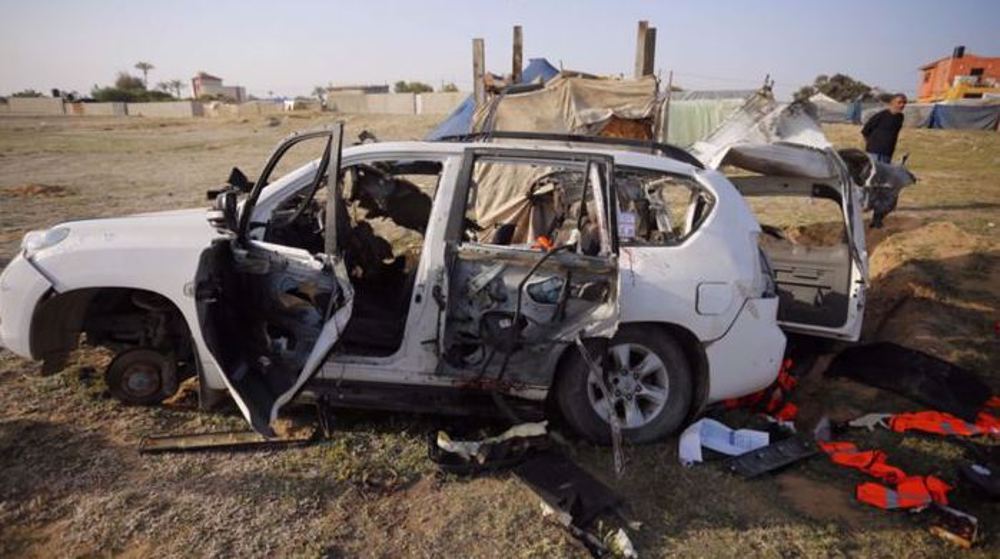
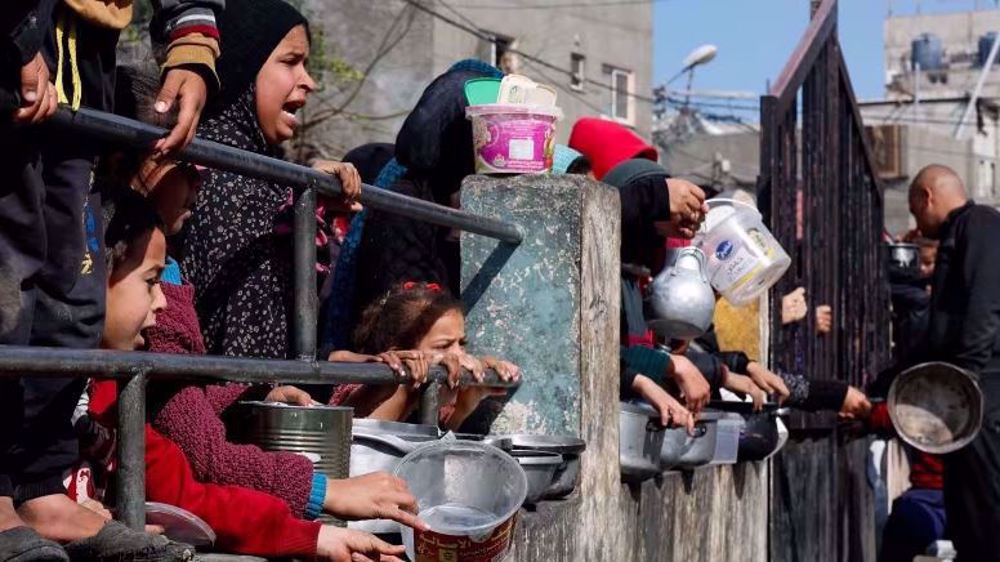
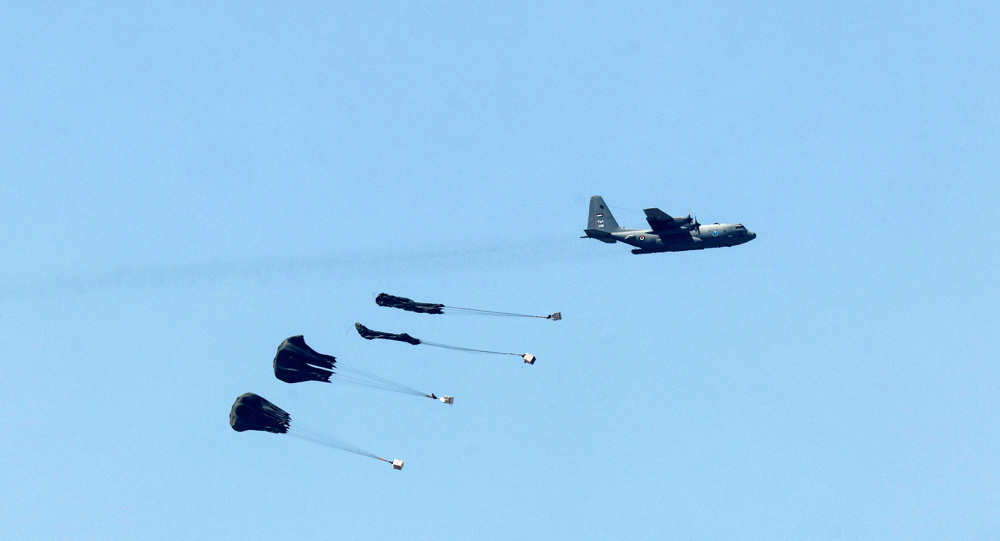
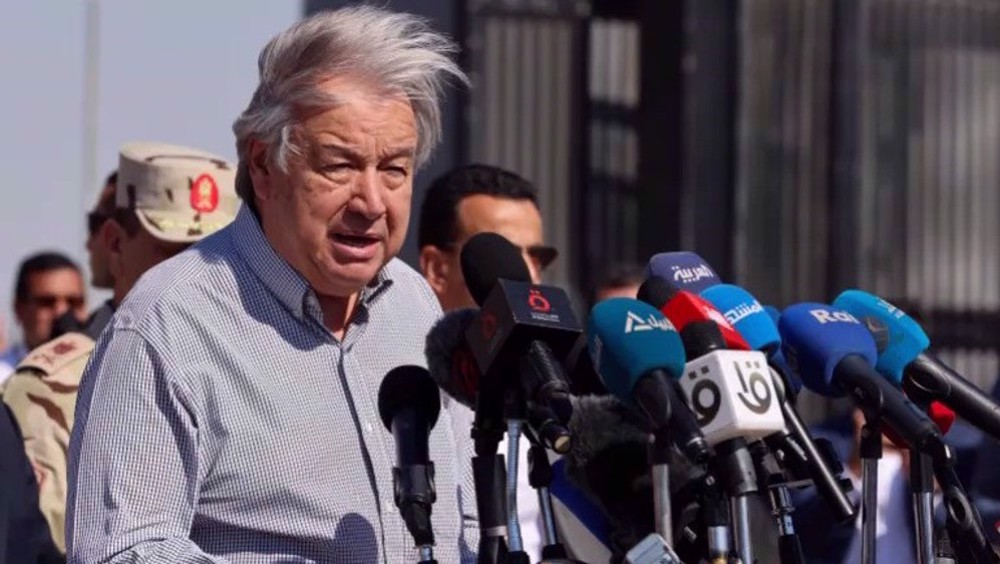

 This makes it easy to access the Press TV website
This makes it easy to access the Press TV website